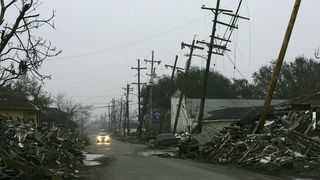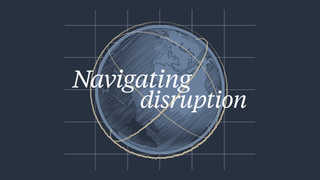As shocking as crises may be to the public, crisis and disaster planning are integral to government planning and operations. From natural disasters and public health emergencies to attacks on the president or the country; the government is expected to respond to a diverse range of crises. But what do these plans look like? How do they get formulated and implemented? How extensive were the US government plans for a global pandemic?
To discuss these issues, USSC hosted a webinar event featuring Rear Admiral Scott Deitchman, a 30-year veteran of the US Public Health Service who led emergency responses at the Centers for Disease Control and Prevention (CDC), in conversation with Adam Kamradt-Scott, an associate professor in global health security and international relations at the University of Sydney.
Scott Deitchman, MD, MPH served for 30 years as a Commissioned Officer in the US Public Health Service, retiring in May 2017 at the rank of Rear Admiral. At the Centers for Disease Control and Prevention he led the CDC’s responses to the public health challenges, chemical, radiological, and natural disasters including the 2004 Asian tsunami disaster, the 2010 Deepwater Horizon oil spill, and the 2011 Fukushima Daiichi nuclear reactor emergency. RADM Deitchman served in the White House as the Vice President’s Medical Advisor for Homeland Security Affairs. He currently is a Principal with Gordon & Rosenblatt LLC, consulting on prevention and control of disease outbreaks caused by Legionella and other organisms. Dr Deitchman also serves as adjunct faculty at the Uniformed Services University of the Health Sciences in the National Center for Disaster Medicine and Public Health. His honours include the Distinguished Service Medal, Meritorious Service Medal, and Outstanding Service Medal.
Adam Kamradt-Scott is an associate professor in global health security and international relations at the University of Sydney. His research and teaching explores how governments and multilateral organisations cooperate and interact when adverse health events such as disease outbreaks, epidemics and pandemics occur, as well as how they respond to emerging health and security challenges.








